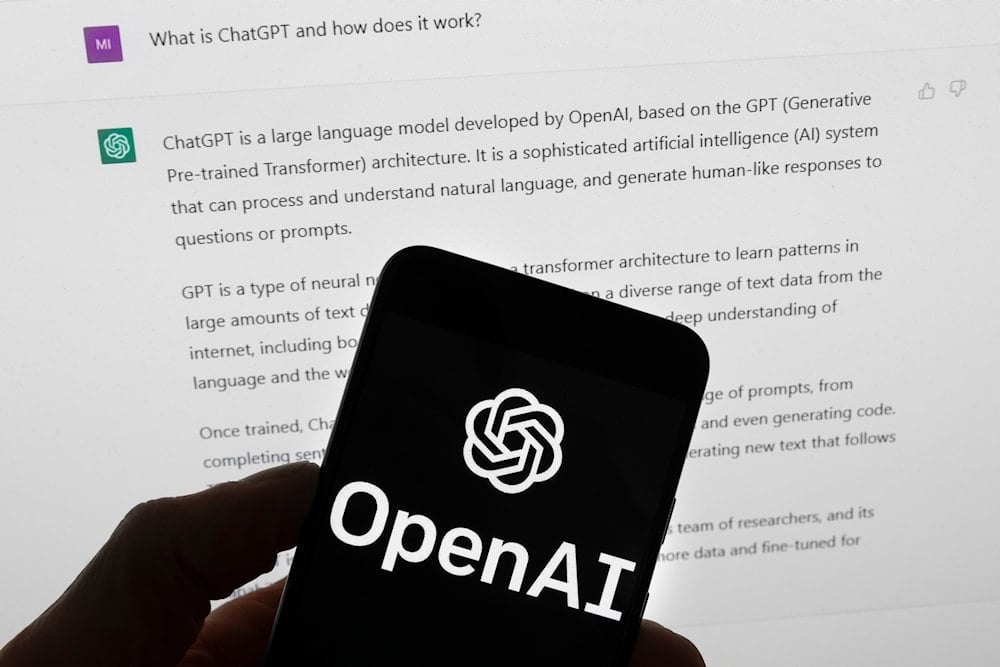ChatGPT sees first decline in business usage as rivals gain ground
ChatGPT use among businesses has dropped, as companies shift to Microsoft Copilot and Google Gemini for AI integration.
-

The OpenAI logo is seen on a mobile phone in front of a computer screen, which displays output from ChatGPT, on March 21, 2023, in Boston. (AP Photo/Michael Dwyer, File)
For the first time since its launch in November 2022, ChatGPT is experiencing a decline in business usage, according to new data from US software firm Netskope. The report reveals that 78% of organizations are currently using the OpenAI chatbot, down from 80% in February 2025.
This marks the first recorded drop in usage for ChatGPT among companies, signaling a potential shift in the competitive landscape of workplace AI tools.
Netskope’s findings are based on internal data from 3,500 of its clients, tracking how often users interacted with 317 different AI applications and chatbots. Among all platforms reviewed, ChatGPT was the only one to experience a decline in business adoption.
Despite the dip, ChatGPT remains the most widely used AI tool overall, still ahead of competitors like Google’s Gemini and Microsoft Copilot, which are currently used by 55% and 37% of companies, respectively.
Companies are increasingly favoring Gemini and Copilot due to their seamless integration with existing office tools such as Microsoft 365, GitHub, and Google Workspace. These platforms offer smoother workflows, making them appealing options for enterprises looking to incorporate generative AI into daily operations.
The shift suggests a growing preference for AI solutions embedded within familiar software environments, rather than standalone platforms like ChatGPT.
AI chatbots now handle larger data loads
The report also shows a sharp rise in data volume being shared with generative AI tools. In 2025, companies are sending an average of 7.7 gigabytes of data per month to AI chatbots, up from just 250 megabytes in 2024, a 30-fold increase in prompt activity.
Approximately 90% of businesses now allow or encourage employees to use generative AI tools directly, including ChatGPT, Gemini, and Copilot. Other popular tools mentioned in the report include Claude (Anthropic), Perplexity AI, Grammarly, and Gamma AI, which is used for enhancing PowerPoint presentations.
Alongside increased adoption and usage volume, Netskope highlights growing concerns about data protection. With large volumes of potentially sensitive information being entered into AI chatbots, including internal documents, source code, and business data, companies face heightened risks of data exposure or misuse.
“The rapid increase in data volume sent to genAI apps significantly increases the data security risk,” the report warns, pointing to the possibility of inadvertent leaks or the mishandling of proprietary information.
This trend is expected to continue in the latter half of 2025, as businesses increasingly integrate generative AI into their operations and weigh the tradeoffs between productivity and protection.

 3 Min Read
3 Min Read










